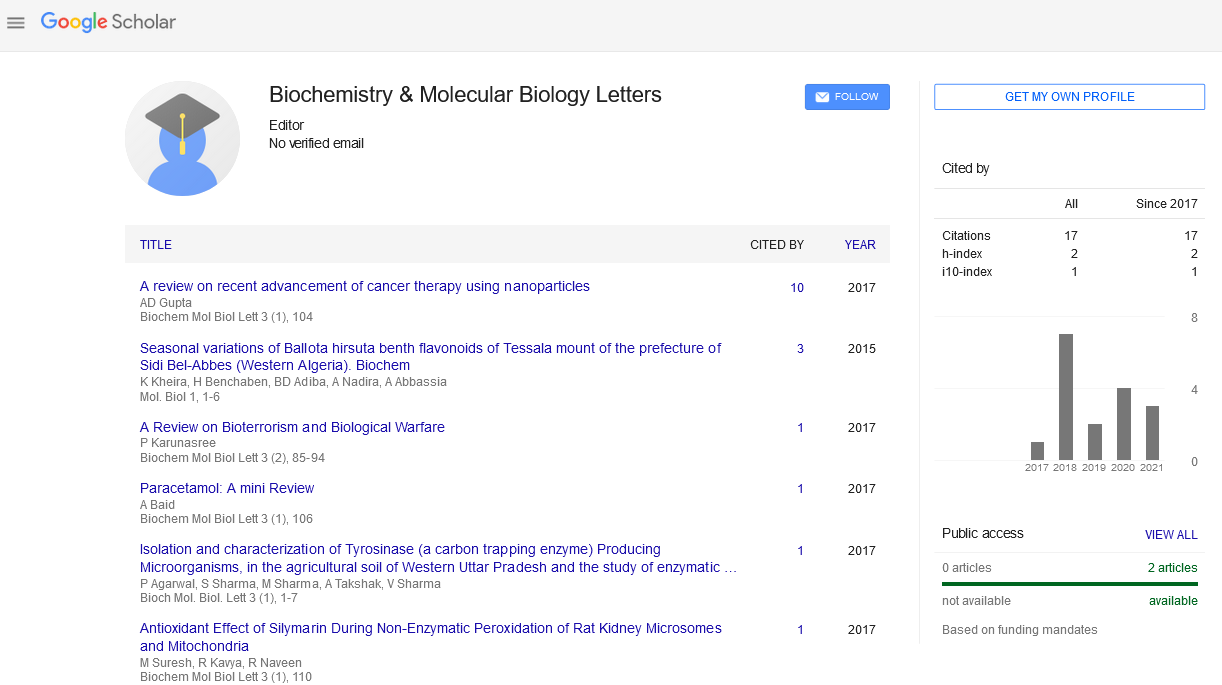Case Report
, Volume: 4( 2)Global Pharmacogenomics in Precision Medicine: Opportunities and Challenges
- *Correspondence:
- Francis R. Scott, Department of Pharmacology, University of Texas Health Science Center at San Antonio, San Antonio, TX, USA; E-mail: scottfrncis@uthscsa.edu
Received: October 03, 2021; Accepted: October 17, 2021; Published: October 24, 2021
Citation: Scott FR. Global Pharmacogenomics in Precision Medicine: Opportunities and Challenges. Biochem Mol Biol Lett. 4(2):146
Abstract
Introduction
The study of the role of inheritance in inter-individual variance in medication response is known as pharmacogenetics. The promise of customised medication therapy to enhance therapeutic efficacy and decrease drug toxicity has been a significant driving force in pharmacogenetics research since its inception in the mid-twentieth century. In recent years, breakthroughs in pharmacogenetics have collided with rapid advances in human genomics, resulting in the transformation of pharmacogenetics into pharmacogenomics, and increased enthusiasm for the 'translation' of this emerging field into clinical practise. Drug therapy can have a wide range of outcomes, from positive results to ineffectiveness to major side effects. Single-gene variations are one well-known cause of such unpredictability, and they define the area of pharmacogenetics.
Genes that influence drug metabolism, drug transport, illness susceptibility, or drug targets may be involved in such changes. The enabling tools for the emerging science of pharmacogenomics, which explores the concept that genetic diversity underpins variability in medication reactions, are the sequencing of the human genome and the cataloguing of variants across human genomes. However, defining candidate genes and pathways, relating disease genes to drug response genes, precisely defining drug response phenotypes, and addressing analytic, ethical, and technological issues involved in the generation and management of large drug response data sets are all challenges that must be overcome in order to apply rapidly accumulating genomic information to understand variable drug responses.
Overcoming these obstacles has the potential to improve novel medication development and, in turn, individualise the selection of treatments and dosages for individual patients [1]. The creation of a unified network would increase the visibility and relevance of pharmacogenomics. Network members would have access to existing and new consortia, datasets, and could attend regular meetings. Access to bio-samples could be facilitated through the creation of Pharmacogenomics sample bank. A variety of approaches, including knock-out, transgenic, and humanized rodent models can be leveraged to understand functional effects of variants. In oncology, patient-derived tumor xenograft models could help elucidate the impact of pharmacogenomic variation in various cancer types. Multidisciplinary teams of medical leads, scientists, laboratory technicians, and pharmacists should be encouraged to become early adopters of pharmacogenomics to better assess clinical utility. When withholding testing is unethical, we need to create a learning healthcare system through prospective empirically-based implementation trials, where data from historical controls can be used; for example, prospective DPYD genotype-guided therapy has been shown to reduce the risk of fluoropyrimidine-associated toxicity. The efficient integration of short turnaround-time genetic testing into ordinary clinical practise has been one of the key challenges to implementing clinical pharmacogenomics.
Both point-of-care and preemptive pharmacogenomic testing initiatives, initially focused on cardiovascular pharmacogenomics, have recently been introduced to address this specific difficulty. Early results suggest that these techniques are viable and likely to be clinically useful; yet, despite these promising advancements in clinical pharmacogenomics, widespread adoption remains a hurdle [2]. Pharmaceutical corporations will continue to put money into genomic technology, databases, and PGx investigations in the future. From early target discovery to late clinical development, genomics has become an essential component of drug development. While the issues mentioned in this perspective are significant, pharmaceutical companies will continue to address them as they pursue precision medicine tactics across the board in medication development.
The most difficult obstacle to overcome may be the continually changing legal and regulatory framework for conducting worldwide investigations. While worries about patient privacy and the exploitation of patient data are legitimate, too restrictive policies would stifle the growth of PGx discoveries and, in turn, will stifle global advances in precision medicine. More positively, genetic technologies are rapidly progressing, and pharmaceutical companies are embracing these advancements. Incorporating patient-level sequencing, polygenic risk scores, and data from huge EHR/genomic databases into clinical trial PGx investigations will certainly aid seed breakthroughs in the future years [3].
References
- Chenoweth MJ, Giacomini KM, Pirmohamed M, et al. Global pharmacogenomics within precision medicine: challenges and opportunities. Clin Pharmacol Ther. 2020;107(1):57.
- Scott SA. Clinical pharmacogenomics: opportunities and challenges at point of care. Clin Pharmacol Ther. 2013; 93(1):33-5.
- Bienfait K, Chhibber A, Marshall JC, et al. Current challenges and opportunities for pharmacogenomics: perspective of the Industry Pharmacogenomics Working Group (I-PWG). Hum Genet. 2021;3:1-9.

